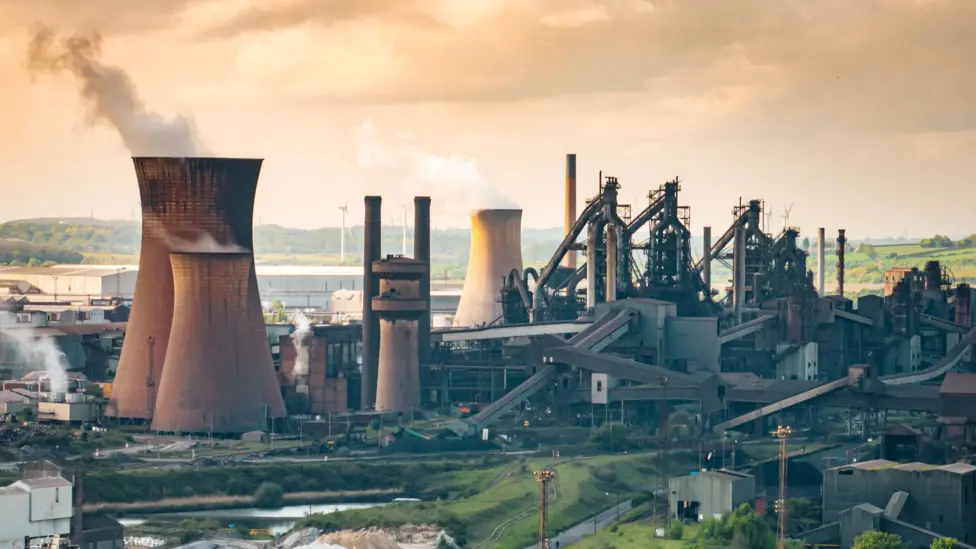Thousands of jobs at risk as British Steel threatens closure
 British Steel is launching a consultation that could see the closure of its two blast furnaces at Scunthorpe, putting up to 2,700 jobs at risk out of a workforce of 3,500.
British Steel is launching a consultation that could see the closure of its two blast furnaces at Scunthorpe, putting up to 2,700 jobs at risk out of a workforce of 3,500.The company said the blast furnaces were "no longer financially sustainable" due to tough market conditions, the imposition of tariffs and higher environmental costs.
The BBC understands British Steel was expecting a £1bn injection of government money to keep the business going, but was offered £500m.
The Prime Minister's official spokesperson said the government had made a "generous offer" to British Steel and it would continue to work with the company and its Chinese owner Jingye to secure its future.
The director general of trade group
UK▸ Steel, Gareth Stace, said British Steel's announcement was a "pivotal moment" for the sector and the steel industry was "officially in a crisis".
Community union general secretary Roy Rickhuss called it "a dark day" and urged Jingye and the UK Government "to resume negotiations before it is too late". He warned: "We are now on the cusp of becoming the only G7 country without domestic primary steelmaking capacity, it is no exaggeration to say that our national security is gravely threatened."
The GMB union called it "devastating news for the people of Scunthorpe", while Unite general secretary Sharon Graham said the potential job losses were "a disgrace" and called for the government to work with it on a "sustainable way forward". "British Steel is guilty of trying to hold the government to ransom, while using its dedicated workforce as pawns," she said.
British Steel has been owned by Jingye since 2020. The Chinese firm says it has invested more than £1.2bn into British Steel to maintain operations and claims it suffered financial losses of around £700,000 a day. British Steel chief executive Zengwei An said the consultations on the closure were "a necessary decision given the hugely challenging circumstances the business faces".
The company has put forward a £2bn business plan, which was set out on Wednesday by the company's chief commercial officer Allan Bell speaking to the Business & Trade Select Committee. ''We have concluded that the only viable option for British Steel moving forward to decarbonise is to move to 100% electric arc furnace steelmaking," he said. "This is a £2bn project we estimate so it is not a project that the private sector is going to be able to implement without government support.''
The BBC understands that there was an expectation the government would meet this investment on a 50/50 basis. But what the government offered was £500m. This offer was rejected by British Steel during the past week.
The BBC understands that at a meeting on Thursday morning between British Steel and the GMB and Community trade unions this £1bn figure was discussed. The government has a £2.5bn steel fund.
British Steel said it would "continue to work with the UK government to explore options for the future of the business".
The company is starting a formal consultation with its workforce and unions over three options:
* The closure of the blast furnaces, steelmaking operations and Scunthorpe Rod Mill by early June 2025
* The closure of the blast furnaces and steelmaking operations in September 2025
* The closure of the blast furnaces and steelmaking operations at a future point beyond September 2025.
Business and Trade Secretary Jonathan Reynolds said: "I know this will be a deeply worrying time for staff and, while this is British Steel's decision, we will continue working tirelessly to reach an agreement with the company's owners to secure its future and protect taxpayers' money. We've been clear there's a bright future for steelmaking in the UK. We've committed up to £2.5bn to rebuild the sector and will soon publish a Plan for Steel setting out how we can achieve a sustainable future for the workforce, industry and local communities."





